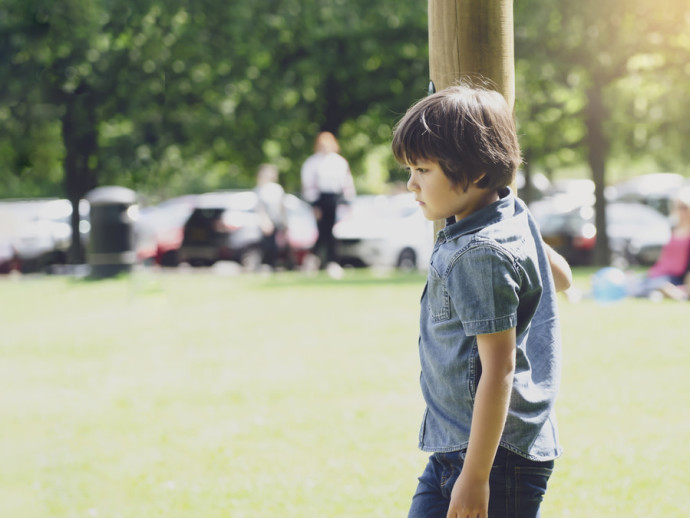We're used to telling children to “apologize” as soon as we catch them doing something wrong, but the truth is, it's really not right to force them to apologize. What’s the best way to teach them?
Stop and think for a moment about the last time you had to apologize to someone. Was it difficult?
If it's hard for you, an adult, to apologize, you know that it’s difficult for your child. Before you force a child’s apology, ask yourself how quickly you apologize when you make a mistake? Do you say it right away? Does it take time? How do you feel when you say it? Do you feel guilty?
Add to that an internal discourse that reminds you again how much you’re "wrong" or "not good enough"?
Noga Hila Mutna, parent and family counselor, NLP facilitator and holistic child therapist, explains that in order to teach the child the meaning of forgiveness, it’s important to teach empathy, understand the other side and try to tell the story the other way around so the child understands how the other person felt.
It’s important for you to prioritize talking with your child and less on the insistence that a child ask for forgiveness so that he/she will look better in the eyes of society. Sometimes, because you’re ashamed of a child’s behavior, it’s important for you to show everyone that you have no idea where this child came from, so that no one will question how you raise your child, but that, as mentioned, isn’t the point.
1 - The role of forgiveness
Forgiveness comes to "cleanse" unpleasant feelings inside us and allow the other side to release these as well. Of course it isn’t up to us alone, but also whether the other side is willing to let go of the anger and hurt or not. For our part, and it’s in our hands, it’s important to see the responsibility, to understand the full picture, to understand our part in the story, to be in a state of contemplation and learn "what can I do differently next time?”
How can you properly teach your child about forgiveness and asking for it?
2 - Show your child how “you” request forgiveness
When a parent shows a child how to request forgiveness, these personal examples are more important than what you say. In front of your child, apologize if you accidentally bypassed someone in line, or say sorry to your spouse if you reacted in a way that might have hurt him or her. The child will hear and see you doing this and internalize that apologizing is good behavior.
3 - Demonstrate what it’s like to be on the other side
If you did something and you feel that you could have acted differently in front of your child, and you apologize and indicate that next time you'll notice your behavior, your child will see what it’s like to be on the side that is apologized to.
He/she will see someone significant who knows how to be human and explore another way of behaving if necessary. True, your child is still young, and you may not feel comfortable being looked at as someone who made a mistake, but you want to show your child how to behave in a way you believe in and not just force an apology without understanding the depth of it.
4 - Emphasize the positive intention in apologizing
When telling the child to apologize, emphasize the positive intention he/she had at that moment and remember that their behavior is the result and expression of a strong emotion or need that hasn’t been answered. In other words, the child may have had good intentions but the "execution" was crooked.
For example, apologizing for a confrontation with another child at the park can start like this: "We know you really wanted to go on the slide and you had a hard time waiting, we understand that. When standing in line, you must wait patiently, even if it’s difficult. When you push it’s unpleasant. If the kid behind you pushed you, it would hurt and maybe even insult you, right? This child probably feels the same way. If it’s really difficult for you, can come to us and we’ll help you find the patience within you, as we know that you have it. "
In conclusion, there is no point in forcing a request for forgiveness and it’s important to reflect on its meaning. It’s enough for a child to experience the other's emotion, allow children to learn from your mistakes and remember to show that you understand their actions.
The best way to teach a child to apologize is from a sensitive and empathetic place.

